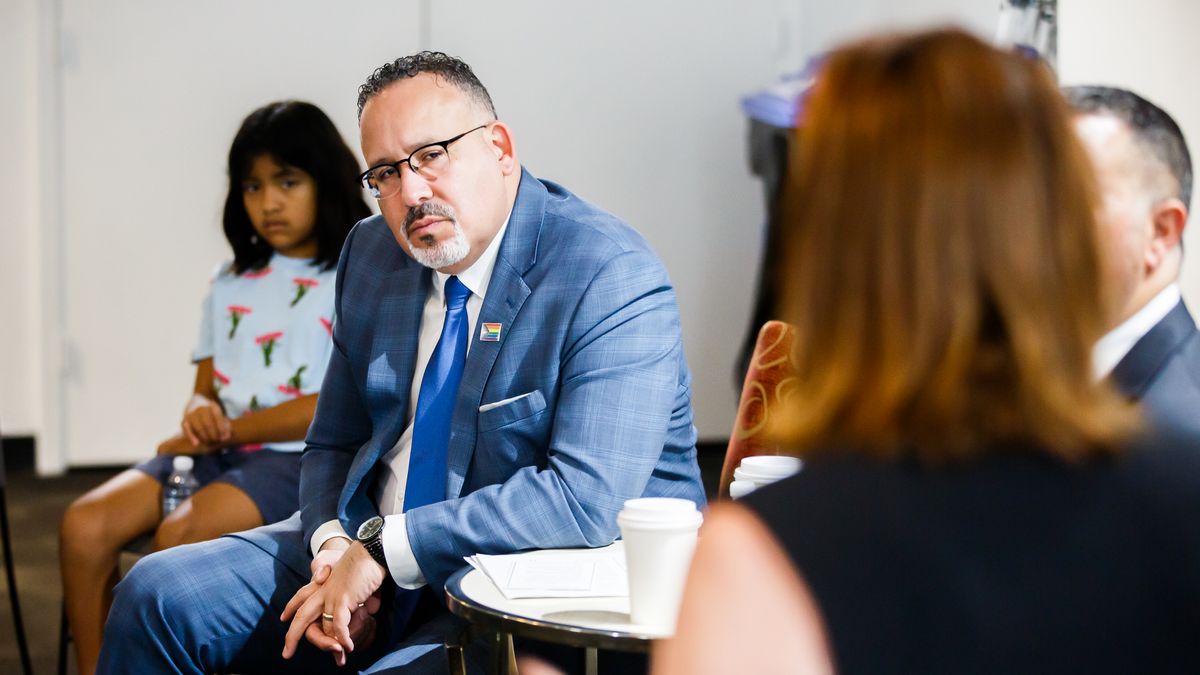
Senior officials at the Department of Education criticized proposed funding cuts in a Republican debt ceiling proposal, warning they would severely impact students and schools.
The plan calls for several billions in cuts to discretionary spending, including $19 billion from education programs. Secretaries Miguel Cardona and James Kvaal said these reductions would be “devastating,” limiting the department’s ability to support students as they recover from the pandemic.
“We must continue investing in our nation’s future by supporting students, schools, and educators during this critical time,” Cardona and Kvaal said in a joint statement. “Cutting funds for student aid, early learning, teacher support, and other essential programs will only create greater crises down the road.”
Specific impacts they cite include:
•Reduced financial aid for college students struggling with job loss and health issues, threatening access and affordability.
• Severe cuts to Title I funding, which provides for disadvantaged students. This could layoff thousands of teachers and increase class sizes.
•Much less funding for IDEA grants supporting students with disabilities, and cuts to programs for English learners, homeless youth and more.
•Elimination of funding for teacher support, development and retention, exacerbating shortages.
•Less funding for child care, early childhood education and home visiting programs crucial for supporting families.
•Major reductions in operating funds for the department, limiting its ability to oversee federal education laws and programs or conduct necessary oversight and monitoring.
Opponents counter that the spending cuts are necessary to reduce deficits, and that funding should be targeted rather than spread across a wide range. Supporters counter that education funding supports economic recovery, opportunity and shared civic purpose. They argue for Composite funding as a reasonable compromise.
There are good arguments on multiple sides of this issue with complex trade-offs to consider. However, the issue highlights debates around government spending, role and priorities as well as the future of public education amid a precarious fiscal situation. Reasonable people can disagree on the appropriate path forward, but the consequences of budget cuts to education programs are clear according to officials warning against them. A balance must be struck to support both fiscal discipline and investment in the nation’s priorities, with education funding seen by many as crucial by promoting opportunity, mobility and success. The debate and determinations that follow will significantly shape the well-being of students, schools and communities nationwide.